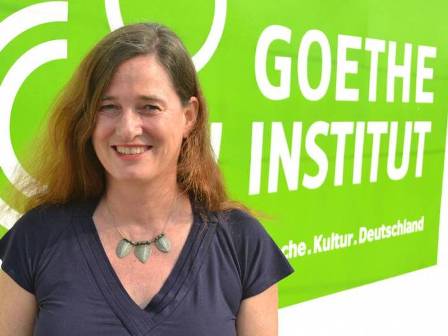By Bamuturaki Musinguzi
Published September 23, 2016
 Uganda has awarded individuals, groups, families and organisations that promote and preserve the country’s diverse cultural heritage at a public ceremony in the capital, Kampala.
Uganda has awarded individuals, groups, families and organisations that promote and preserve the country’s diverse cultural heritage at a public ceremony in the capital, Kampala.
Among those honoured for their exemplary service in the preservation and promotion of tangible and intangible heritage during the second National Heritage Awards include practitioners in fields such as traditional medicine, house-construction, music and dance and management of historical buildings.
Winners in the Tangible Heritage category, who included Prometra-Uganda, Madhvani Family and St Peter’s S S Nsambya, each walked away with a USh2 Million cash prize.
Fort Jesus, now a part of St Peters Senior Seminary on Kampala’s Nsambya Hill, may be reminiscent of Roman Architecture because of its arches. However, it is built with soil and sunburnt bricks without any beam. The building was constructed between 1895 and 1907 and served as the first mission house of the Mill Hill Missionaries. It has also been used, at various times, as a church, residence of Fathers and Brothers and education centre before St Peters Cathedral Nsambya was built in 1951. It was named Fort Jesus in 2007 during the centenary celebration of St Peters SS Nsambya for its long stay without modification. It now serves as a dormitory for students.
RELATED:Tanzania Film Federation Awards Movie-makers and Actors, Appeals for Government Support
Receiving similar recognition was the Vithaldas Kalidas Haridas and Company building on Main Street in Jinja District.
 Mayur Madhvani, the Managing Director of the Madhvani Group, says the building that was constructed in 1922 incorporates a unique architectural design inspired from India and the United Kingdom.
Mayur Madhvani, the Managing Director of the Madhvani Group, says the building that was constructed in 1922 incorporates a unique architectural design inspired from India and the United Kingdom.
The Vithaldas Kalidas Haridas and Company building currently houses offices.
On its part, Prometra-Uganda won a National Heritage Award for its establishment of Buyijja Forest School in central Uganda which acts as a natural pharmacy, library of raw materials and centre for traditional medicine knowledge and healing practices.
Prometra-Uganda, that came into being in 2000, focuses on traditional health care, a form of medicine that is comparatively accessible and affordable.
Drawing students from Mpigi, Butambala and Gomba districts, the school hosts an estimated 4000 traditional healthcare practitioners.
“Our forest has lots of medicinal plants for food and healing. Some of our traditional medicine has been studied and proved that it can cure diseases such as diarrhoea and resistant TB, among others. Therefore, this award has elevated us,” Dr Yahaya Sekagya, the Director of Prometra-Uganda, said during the awards ceremony.
RELATED:Winners of the National Heritage Art Competition for Youth Receive Their Prizes
Winners in the Intangible Heritage category included Ndote Family, Albert Ssempeke and Family and Nebbi Cultural Troupe.
The Ndote Family, which has been instrumental in the promotion of Kisoga traditional music, was recognised for its promotion and preservation of Kisoga traditional music by making, playing and training music teachers, school-going children and youth to play Kisoga musical instruments through six generations.
The Ndote Family, that is currently headed by Mukisa Charles Ndote, has contributed to the music sector through the making of authentic Kisoga music instruments, such as drums, xylophones, fiddles, thumb pianos, flutes, shakers, lyres, harps, panpipes as well as making dancing costumes. As some instruments are made from rare and hard-to-find tree specifies, the family has had to plant them for this purpose. It also trains them on how to make, maintain and repair the instruments.
The late Dr Albert Ssempeke, who began playing the endere flute at the age of 11, was tutored by the royal flutists of the Buganda Kingdom and rose to become a royal court musician, having added the lyre, and drums to his repertoire. However, his career suffered a blow when President Milton Obote abolished traditional kingdoms in Uganda in 1966.
RELATED:12th Africa Movie Academy Awards Crowns Stars
By 1980s, most people had either forgotten royal music or died, which left Ssempeke as one of the last royal musicians. He became a point of interest for ethno-musicologists.
With his rare knowledge of the Kiganda musical tradition, Ssempeke was in 1987 invited to serve as a tutor at the University of Edinburgh in Scotland. It was while at this institution that he had the opportunity to share his culture widely by touring in the UK and Europe. With his band, Heartbeat of Africa, Ssempeke is reported to have embarked on royal music promotion tours around the world

Ssempeke’s sons, Albert Bisaso Ssempeke, Jr, and John Ssekitoleko, all skilled in playing the ennaga harp and endongo lyre, ”have kept their father’s legacy and Buganda kingdom’s heritage alive by continuing to play the rare royal Buganda music.
Winning for its preservation and promotion of Alur cultural heritage was Nebbi Cultural Troupe (NCT). NCT was formed in 1993 in Nebbi district in northern Uganda. Initially, the NCT used music, dance and drama to entertain and promote the local Alur culture. That earned it the Northern Uganda Social Action Fund Traditional Media Award in 2007.
RELATED:Zimbabwean Endorsed for Top UN World Tourism Job
The National Heritage Awards, that was held at the Nommo Gallery in Kampala on June 17, 2016, was first organised by a non-governmental organization called Cross-Cultural Foundation of Uganda (CCFU) in 2013.





